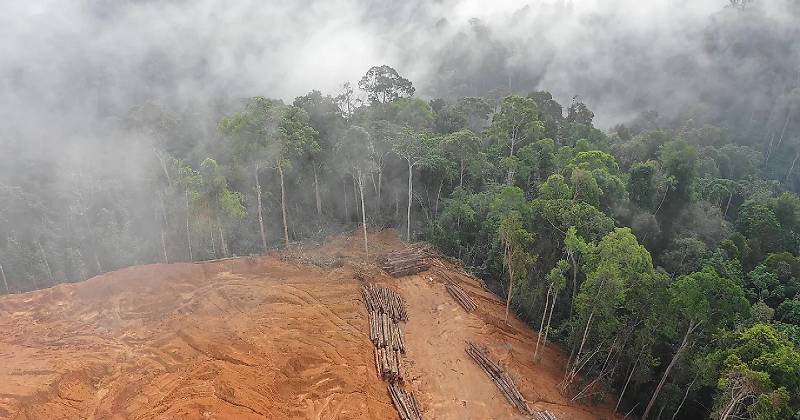
In the first significant agreement reached at the COP26 climate summit, more than 100 world leaders committed to ending and reversing deforestation by 2030.
On Tuesday, Brazil will be one of the signatories, despite the fact that large swaths of the Amazon rainforest have been logged. Almost £14 billion ($19.2 billion) in public and private contributions are included in the deal.
Experts applauded the initiative, but cautioned that a prior agreement in 2014 failed to curb deforestation at all and that promises must be kept.
Cutting down trees contributes to climate change by depleting forests, which absorb a large quantity of CO2.
The pact reached on Tuesday was referred to as a ‘landmark agreement to protect and restore the Earth’s forests’ by UK Prime Minister Boris Johnson, who is hosting the global summit in Glasgow.
If climate change is to be controlled, the two-week conference in Glasgow is viewed as critical.
Canada, Brazil, Russia, China, Indonesia and the Democratic Republic of the Congo are among the countries that have said they will sign the promise, which covers around 85 percent of the world’s forests.
Some of the money will go to poor countries to help with land restoration, wildfire suppression and indigenous community support.
Deforestation will also be eliminated from the global trade of food and other agricultural products such as palm oil, soya, and cocoa according to the governments of 28 nations.
These industries contribute to forest loss by chopping down trees to make room for livestock or crops.
More than 30 of the world’s largest corporations have pledged to stop investing in deforestation-related operations.
In addition, a £1.1 billion fund will be formed to conserve the Congo basin tropical rainforest, which is the world’s second largest.
‘It is wonderful news to have a political commitment to halt deforestation from so many nations, and significant financing to carry forward on that journey,’ said Prof Simon Lewis, a climate and forests expert at University College London.
However, he told the BBC that the world has been here before, referring to a proclamation made in New York in 2014 that failed to curb deforestation in any way.
He also noted that the new agreement does not address rising demand for items such as meat grown on rainforest land, which would need addressing high levels of meat consumption in nations such as the United States and the United Kingdom.
This arrangement involves more countries, more parties and more money, Ana Yang, executive director of Chatham House Sustainability Accelerator and co-author of the report Rethinking the Brazilian Amazon, stated. However, the devil is in the details, which we must still examine.
‘This is a critical phase in the COP26 process. This gathering is about increasing ambition and keeping global temperature rises below 1.5 degrees Celsius – this is a huge step forward,’ she continued.
Tuntiak Katan of the Amazon Basin Coordination of Indigenous People hailed the agreement, telling the media that indigenous communities were in the forefront of halting deforestation.
Mr Katan, an indigenous Shuar from Ecuador, claims that indigenous people around the world conserve 80 percent of the world’s biodiversity, but they face threats and murder.
‘For years, we have defended our way of life, which has resulted in the preservation of ecosystems and forests. Without us, no amount of money or legislation will be able to halt climate change,’ he stated.
A lot of important countries will sign the agreement.
The world’s top exporter of palm oil, which can be found in everything from shampoo to cookies, is Indonesia. For indigenous people, palm oil production is causing tree devastation and territory loss.
Meanwhile, Russia’s vast natural forests, which account for more than a fifth of the world’s trees, trap about 1.5 billion tonnes of carbon each year.
Under Brazilian President Jair Bolsonaro, deforestation in the world’s largest rainforest, the Amazon, surged to a 12-year high in 2020.
Brazil’s participation in the agreement is critical since it controls a substantial portion of the world’s tropical forests. However, the funds must be directed to those who can carry out the work on the ground, Ms. Yang expressed herself.
Many people in the Amazon, particularly those living in cities, rely on the forest for their lives, and they require assistance in finding alternative sources of income, she added.
In a warming planet, trees are one of our most important defences. They operate as carbon sinks, sucking carbon dioxide from the atmosphere. They absorb around a third of the CO2 emitted globally each year.

Post Your Comments